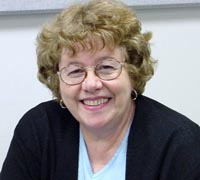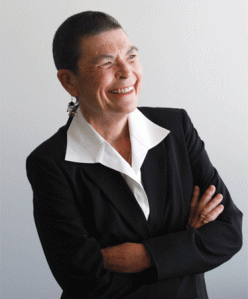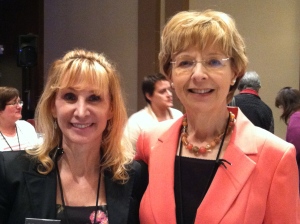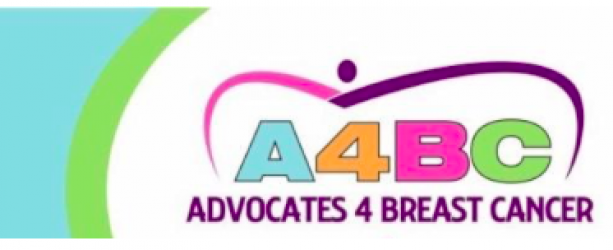As I returned home from the NBCC (National Breast Cancer Coalition) Advocates Summit and Lobby Day to end Breast Cancer Deadline 2020, I was really happy I went. I have to admit I had so many reservations going. I labored over my decision. I thought I was going to fly home with “Frustration – Part Two.” There’s been a lot of people angry with the NBCC because of issues about putting MBC (Metastatic Breast Cancer) under the bus literally. My fearless friends have real reasons to be upset. Here is an organization that has educated so many women who have had to hear the words “You or a loved one has breast cancer.” They have an incredible program called Project LEAD which is an intensive six-day course teaching the science and very important advocate issues about breast cancer.
 I have learned a great deal from Project LEAD, LEADcasts, summits and attending Breast Cancer Symposiums that stemmed from first learning with the NBCC about breast cancer. Great scientists, researchers, doctors and leaders of breast cancer advocacy taught me the grim statistics that now in the US alone 108 women die a day of MBC (metastatic breast cancer). That’s one woman every 14 minutes. There are also men but the stats are less. In 1975 there were 112 deaths a day in the US from MBC. It’s 2013. Four less deaths a day is not much progress when it comes to death rates.
I have learned a great deal from Project LEAD, LEADcasts, summits and attending Breast Cancer Symposiums that stemmed from first learning with the NBCC about breast cancer. Great scientists, researchers, doctors and leaders of breast cancer advocacy taught me the grim statistics that now in the US alone 108 women die a day of MBC (metastatic breast cancer). That’s one woman every 14 minutes. There are also men but the stats are less. In 1975 there were 112 deaths a day in the US from MBC. It’s 2013. Four less deaths a day is not much progress when it comes to death rates.
So here was my dilemma. The NBCC who taught us about the death rates has a campaign to end breast cancer in 2020. So what happens to the metastatic patient while they figure out how to get a vaccine to end breast cancer?
There has been a lot of differences of opinion within the breast cancer community and understandably so. If you are only preventing breast cancer and preventing metastatic breast cancer what of the person diagnosed as metastatic. The very people they say they are helping…Are they really helping them?
I went to symposium expecting to come home finished with them. But my mind was open. I saw that Musa Meyer was going to the conference. She is the head of the advanced metastatic breast cancer organization. She is committed to the advanced breast cancer community and through her website http://www.advancedbc.org and the BCMets,org online community Musa focuses daily with BCMETS.org by helping women with MBC and their families understand treatment options and emerging research.
There was also an impressive line up of speakers. Dr Dennis Slamon gave a great talk. He is best known for being instrumental in the identification of the Her2/neu oncogene and the resulting treatment of tratusunab (Herceptin) which has been hailed as the first triumph in an emerging wave of targeted therapies. Some other speakers included Dr. Susan Love, Dr. Michael Baum, Dr. Peter Lee, and Dr. Barrett Kramer to name a few. In my next post I will be writing more about what some of these speakers spoke about.
Shirley Mertz of the MBCN (Metastatic Breast Cancer Network) was also at the conference. If leading metastatic breast cancer patients and their organizations were getting behind the deadline, and I have always supported the NBCC, I owed it to myself and Advocates for Breast Cancer to attend and make up my mind.
The most moving plenary session I attended was called “Effectively Targeting Metastasis in Breast Cancer.” First Shirley Mertz spoke to us, endorsing Deadline 2020. She talked about the differences between early stage breast cancer patients and MBC. 80-90% of all breast cancer patients start at early stage breast cancer. Early stage can be anything from DCIS (ductal carcinoma in situ) which is pre-cancer and a little more complicated but for this post I will leave the explanation as that. Early stage cancer can also be cancer that is contained in the breast where someone might only need a lumpectomy or a mastectomy and/or radiation depending on the size of the tumor and whether there is lymph node involvement. Otherwise another early stage breast cancer is when the cancer travels to the lymph nodes and the patient could have a lumpectomy, chemotherapy and/or radiation and/or a mastectomy but the most important thing to understand about early stage is that one is told they have a 70% chance of survival and many do whatever treatments that are recommended or they feel will work and after treatment some prescribed medications depending on their pathology. Some also choose alternative therapies. For most early stage patients, when they “finish primary treatment” and are told they have NED (No Evidence of Disease) they can have the chance of knowing they may be “cured.” Then they are told they have a 30% chance of a metastatic recurrence that can happen at any time, but at least there is an end point to the treatment. Of course there are many side effects and I am oversimplifying “treatment” as an end point but I am trying to show the differences between early stage breast cancer and MBC. MBC is chronic and so far there is no known “cure”.
 Shirley explained about how she goes for chemotherapy infusions and where she goes there are early stage patients getting chemo and when they get their last treatment they have a special bell and everyone celebrates their end point of chemotherapy treatment. When one has metastatic breast cancer there is no end point to treatment so Shirley remembers the joy of knowing there was an end point but unfortunately for the MBC patient this will never happen. There are also people with inflammatory breast cancer which is an unbelievably aggressive form of breast cancer that many do not survive. Again for simplicity I am just trying to show the many differences that exist in breast cancer diagnosis and treatment options.
Shirley explained about how she goes for chemotherapy infusions and where she goes there are early stage patients getting chemo and when they get their last treatment they have a special bell and everyone celebrates their end point of chemotherapy treatment. When one has metastatic breast cancer there is no end point to treatment so Shirley remembers the joy of knowing there was an end point but unfortunately for the MBC patient this will never happen. There are also people with inflammatory breast cancer which is an unbelievably aggressive form of breast cancer that many do not survive. Again for simplicity I am just trying to show the many differences that exist in breast cancer diagnosis and treatment options.
After Shirley Mertz, Suzanne Faqua PHD continued talking with us about the science involved and critical issues in metastasis research. Suzanne is a professor in the Lester and Sue Smith Breast Center at the Baylor College of Medicine. She specializes in metastatic research especially working with hormone positive MBC.
She explained the way current science recognizes the need to study not only the primary tumor but looking at the similarities and differences of the heterogeneity of a metastatic tumor. As we look at the critical issues in metastatic research our approach is important. For optimal targeted therapy we must identify key pathways (key drivers), block the pathway completely, anticipate escape mechanisms and block them too, and explore combination therapy. She talked about studies related to PIK3CA status in blood, liquid biopsies, circulating tumor cells and how we must do targeted therapies in human trials. Her talk had some of the complicated science involved with tumor dormancy, including the fact that there aren’t current dormancy-cell killing drugs in clinical trials. This needs to change.
Some of her personal perspective of the critical issues in metastasis research includes the need for us to get the pace moving. We have to change the dogma that “The horse is out of the barn” so we can prevent metastasis. There is a lack of clear “drivers” to target. Suzanne also spoke about how important it is to now understand the metastatic tumors and be able to collect tissue samples from biopsies of metastatic tumors and analyze them. Apparently there is a problem within the research community where the researchers want to study the tissue samples from metastatic tumors and how there is difficulty getting theses samples. The woman sitting next to me said she gave her samples and is disappointed that researchers aren’t getting their samples. Another problem is funding. Negative funding will slow and halt progress. That’s why Lobby Day was so important and we also need to keep the program at the DOD (Department of Defense) going so we continue vital research especially when it comes to metastasis.
The NBCC is going to have a special meeting in June with scientists, doctors and metastatic breast cancer patient advocates to study metastatic breast cancer and tumor dormancy. The science is complicated. But someone explained to me that the basics are if the scientists can take the metastatic patients and get their metastatic tumors to go back to sleep and not spread any further, they can go on to live with the disease for many years. The best way I can understand and explain it is that with AIDS they have not found “the cure” but they have found medications that allow people to continue to live with AIDS and they can live for a very long time.
This information is very important to me. I know I have written about the death of my best friend from MBC who survived and thrived through primary chemo with me and lived as long as she could with triple negative MBC. I have so many friends with metastatic breast cancer now, and met some really special new friends at the conference and I have written about how upset I am that they need to have more money dedicated to metastatic research.
One of the difficult things in the breast cancer world is that different organizations have different agendas. Sometimes there are clashes. I am someone who wants everyone to work together. I believe in teamwork. It is the spirit of teamwork that helps me understand the mistakes of the past with breast cancer and pink culture yet try to move forward with my advocacy.
This is what I gained from the people who are committed to deadline 2020. Advocates are working in every way they can to see an end to this disease so that we don’t have to have our sons and daughters hear the words “you or a loved one has breast cancer.”
I understand that some people are moving on from the NBCC and others like me and many of my new friends that I met in DC are supporting the NBCC. For those that don’t want to support them, please know I understand your point of view and I am not going to tell anyone they have to feel the same as I do. This was my experience at the conference. This is what I went away feeling that I am doing what I believe is right for myself and my organization. I am passionate about my advocacy and making a difference with breast cancer and nothing will change that. I hope that one day this horrible disease can be contained and women can go on to live happy productive lives with the most quality of life that they can as result of the scars that come with this disease.
I respect that others see some of what the NBCC is doing with a different lens. When it comes to our passion and intentions, we are all on the same side. What is most important is that we respect each other and work towards ending this disease in every form while we continue to place much emphasis on metastatic research.
Setting a deadline is always a good idea to set goals and try to reach them. Had we never set a goal to get a man on the moon we never would have footage of Neil Armstrong stepping on the moon and saying th![Department_of_Defense[1]](https://a4bc.wordpress.com/wp-content/uploads/2013/05/department_of_defense1.jpg?w=525) e famous words, “One small step for a man, one giant leap for mankind.”
e famous words, “One small step for a man, one giant leap for mankind.”
Lobby Day was also important to get bipartisan agreement and congressional representatives to sign “The Accelerating the End of Breast Cancer Act”, H.R. 1830, and that we continued to get the funding support for the Peer-Reviewed Department of Defense Breast Cancer Research Program (BCRP).
I also met some amazing new fearless friends many who currently are metastatic and have such interesting stories. As we all know it is our unique stories that move us to understand more about this horrible disease and fuels us to do whatever we can to help one another in this land of cancer.
I am so glad I went to DC and came back with all of this hope as well as meeting great new friends. The Summit was so much at once and my only criticism is that they packed in so much that we didn’t even have a break during meals because there were speeches and meetings during the whole time. Even though it was exhausting, the Summit was really worth it. Hope is a great thing to have in our lives.


 The most exciting part of the symposium was (A4BC) joining with other organizations that are working toward the same mission. We met with Beth Caldwell, mother, wife, cancer patient, METUP co-founder, and blogger. Meeting people that we know through social media and being able to interact with them is so meaningful because we are able to join forces to save lives. We also met Corrie Painter PHD who along with NiKhil Wagle, MD is working on the MBCProject.org. They believe in sharing the data. This is a whole new way of approaching research.
The most exciting part of the symposium was (A4BC) joining with other organizations that are working toward the same mission. We met with Beth Caldwell, mother, wife, cancer patient, METUP co-founder, and blogger. Meeting people that we know through social media and being able to interact with them is so meaningful because we are able to join forces to save lives. We also met Corrie Painter PHD who along with NiKhil Wagle, MD is working on the MBCProject.org. They believe in sharing the data. This is a whole new way of approaching research.


























![Department_of_Defense[1]](https://a4bc.wordpress.com/wp-content/uploads/2013/05/department_of_defense1.jpg?w=525)













